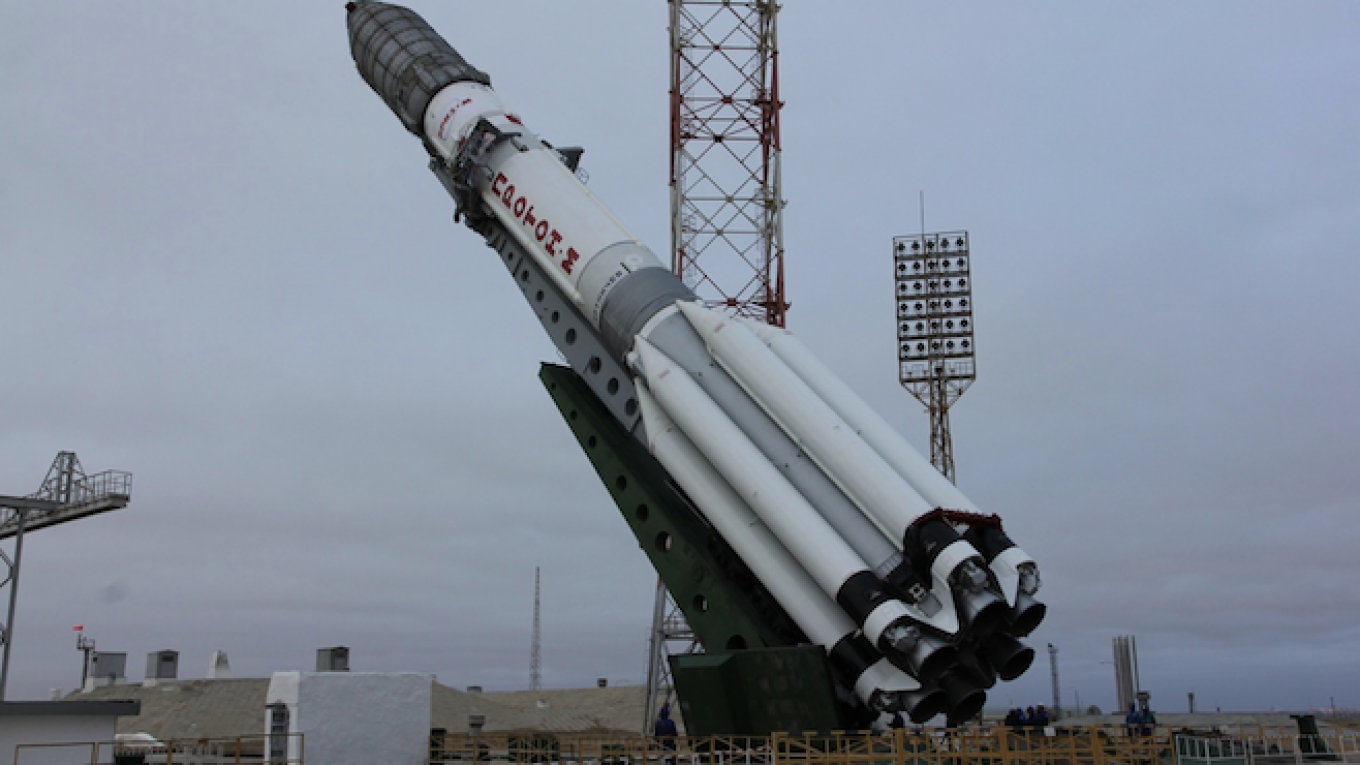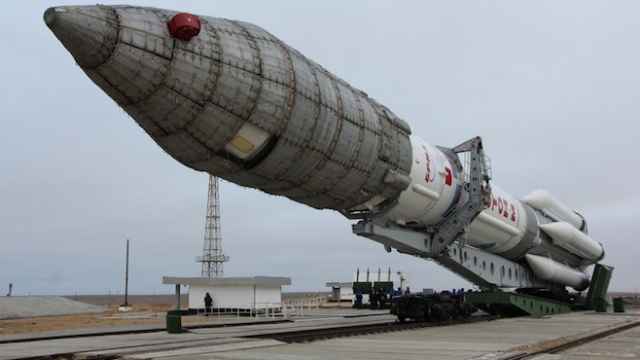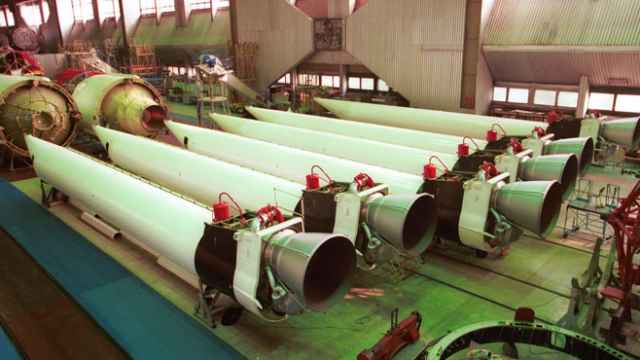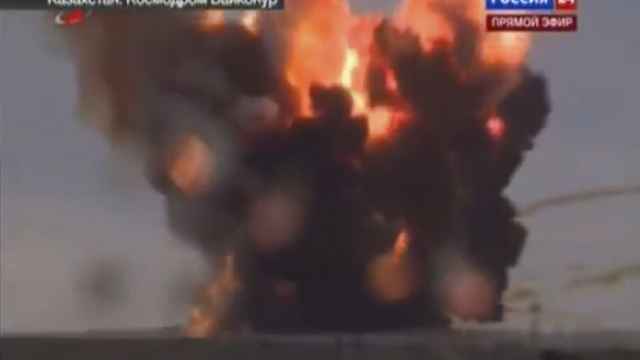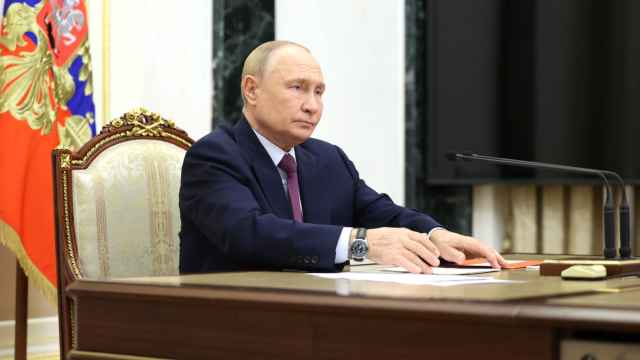The upcoming launch of a Russian Proton-M rocket with a European telecommunications satellite on Friday has been postponed after technicians at the Baikonur Cosmodrome in Kazakhstan discovered a fault in the vehicle's control system on Wednesday, Russia's Federal Space Agency said.
One of the most frequently used rocket designs in history, the Proton rocket was set to conduct its 400th flight on Friday. But with the vehicle's reputation still recovering from a series of embarrassing launch failures in recent years, officials are taking no chances.
The agency, Roscosmos, said in a statement that a fault was discovered in the control unit of the Briz-M upper-stage booster — the part of the rocket that maneuvers its satellite payload into the proper orbit after reaching space.
The Proton rocket has been taken off its launch pad and returned to the assembly building, where engineers will replace the faulty command system and any other faults that may arise, the statement said.
A new launch date for the rocket will be announced after the new components are installed, Roscosmos said without specifying a timeframe.
Launch schedules at Baikonur, the world's busiest spaceport, are typically congested so the delay may be lengthy.
A different Proton rocket carrying a Yamal-401 communications satellite for Gazprom Space Systems, an arm of Russia's giant state gas company, will lift off from Kazakhstan in mid-December, according to the TASS news agency.
Proton rocket launches accounted for almost 30 percent of the commercial satellite launch market over the past decade, but the design's future is in jeopardy.
The Khrunichev Space Center, which has been plagued by quality control issues and financial troubles, is the Proton rocket's main producer. But it is also the prime contractor on another important rocket project — Angara.
The first rocket of post-Soviet design, Angara conducted its first successful test launch in July. A test of a larger version of Angara, the so-called "heavy" configuration, is set to blast off from the Plesetsk Cosmodrome on or around Christmas Day.
Angara has been tentatively tapped as a commercial replacement for Proton, as Khrunichev does not have the production capacity for both types of rockets, and commercial launches remain an important source of financing for Russia's space industry.
Contact the author at bizreporter@imedia.ru
A Message from The Moscow Times:
Dear readers,
We are facing unprecedented challenges. Russia's Prosecutor General's Office has designated The Moscow Times as an "undesirable" organization, criminalizing our work and putting our staff at risk of prosecution. This follows our earlier unjust labeling as a "foreign agent."
These actions are direct attempts to silence independent journalism in Russia. The authorities claim our work "discredits the decisions of the Russian leadership." We see things differently: we strive to provide accurate, unbiased reporting on Russia.
We, the journalists of The Moscow Times, refuse to be silenced. But to continue our work, we need your help.
Your support, no matter how small, makes a world of difference. If you can, please support us monthly starting from just $2. It's quick to set up, and every contribution makes a significant impact.
By supporting The Moscow Times, you're defending open, independent journalism in the face of repression. Thank you for standing with us.
Remind me later.


